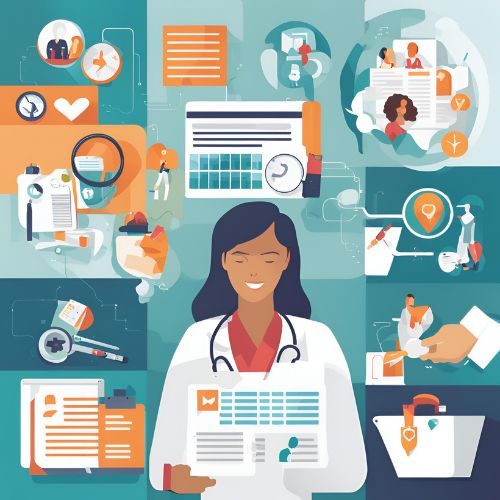
In the dynamic and demanding field of healthcare, possessing a diverse skill set is crucial for delivering high-quality patient care and navigating complex healthcare environments. This article explores the essential skills and competencies that healthcare professionals should cultivate to excel in their roles.
📊 Understanding the Importance of Health Care Skills
🏥 Why Skills Matter in Health Care
Healthcare professionals, including doctors, nurses, allied health professionals, and support staff, require a range of technical, interpersonal, and critical thinking skills to meet patient needs effectively. These skills contribute to better outcomes, patient satisfaction, and overall quality of care.
📋 Essential Skills for Health Care Professionals
🩺 Clinical Skills
✅ Icon: ⚕️
- Description: Proficiency in clinical skills such as patient assessment, diagnostic procedures, treatment planning, and administering medications is fundamental for healthcare professionals across all specialties.
🤝 Communication Skills
✅ Icon: 🗣️
- Description: Effective communication with patients, families, and multidisciplinary teams is essential for delivering clear medical information, addressing concerns, and fostering trust and collaboration.
📚 Continuous Learning
✅ Icon: 📖
- Description: Commitment to ongoing education and staying updated with advancements in medical research, technology, and best practices ensures healthcare professionals provide evidence-based care.
🧠 Critical Thinking
✅ Icon: 🤔
- Description: The ability to analyze information, make informed decisions under pressure, and solve complex problems is crucial for healthcare professionals facing diverse patient scenarios.
🌟 Empathy and Compassion
✅ Icon: ❤️
- Description: Demonstrating empathy, compassion, and cultural sensitivity fosters patient-centered care, enhances patient satisfaction, and supports emotional well-being during medical treatment.
🌐 Technical Proficiency
✅ Icon: 💻
- Description: Proficiency in utilizing medical technologies, electronic health records (EHRs), and specialized equipment ensures accurate documentation and enhances operational efficiency in healthcare settings.
🤲 Teamwork and Collaboration
✅ Icon: 🤝
- Description: Collaboration with colleagues, including physicians, nurses, therapists, and support staff, promotes seamless care transitions, interdisciplinary communication, and optimal patient outcomes.

💼 Using the Health Care Skills Checklist
📝 Assessing and Developing Skills
✅ Icon: 📊
- Description: Regular self-assessment and feedback from supervisors help healthcare professionals identify strengths and areas for improvement in their skill set, guiding professional development plans.
🎓 Training and Development
✅ Icon: 🎯
- Description: Participating in workshops, continuing education programs, and specialized training courses enhances proficiency in specific healthcare skills and keeps professionals abreast of industry trends.
📈 Advancing in Health Care Careers
🏆 Career Advancement
✅ Icon: 🚀
- Description: Demonstrating proficiency in key healthcare skills, coupled with leadership qualities and a commitment to quality improvement, opens opportunities for career advancement and specialization.
🏁 Conclusion
A comprehensive health care skills checklist encompasses a blend of technical expertise, interpersonal skills, and a commitment to continuous improvement. Healthcare professionals who cultivate these skills not only enhance patient care outcomes but also contribute to a positive work environment and professional satisfaction.
By prioritizing the development and refinement of essential healthcare skills, professionals can navigate the complexities of healthcare delivery with confidence and competence. Incorporating ongoing learning, effective communication, teamwork, and empathy into daily practice ensures healthcare professionals meet the diverse needs of patients and contribute to the advancement of healthcare standards.
In conclusion, the health care skills checklist serves as a guide for healthcare professionals seeking to excel in their roles and make a meaningful impact on patient care and overall healthcare outcomes.




















